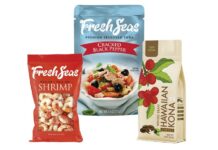Compliance with regulations is essential in the ever-evolving world of packaging. The UK packaging market happens to consider food as a crucial industry. In 2021, it produced a total of 109.9 billion units. It is projected to experience a CAGR of over 1% by 2026.
Understanding food labelling in the UK is an essential component of the job for those who happen to be a part of the packaging industry.
Recently, the UK went on to impose stricter regulations regarding the labelling of plant-based food and drink products.
Food labelling is a crucial aspect of providing consumers with important information about the products they purchase. In the UK, food labelling requires certain essential elements to be shown on every package. These crucial details have to be present to ensure that consumers are able to make sound choices when it comes to the products they opt to purchase.
The Name
The name of the food is the identity of the product. The packaging should be simple and straightforward, enabling consumers to easily identify the contents. Having a correct name is the initial step in promoting transparency.
The Dates
The best-before or use-by date is an important indicator of the freshness and safety of a product. The expiration date provides consumers with information about the optimal quality of the product or a suggested timeframe for its consumption, so as to ensure safety.
Vital warnings
Certain foods are accompanied by particular warnings, such as information regarding allergens or alerts related to health. It is essential to prominently display these warnings in order to prioritise consumer safety.
Net quantity facts
Shoppers desire to have a clear understanding of what they will receive in exchange for their money. Net quantity information is important for consumers as it provides them with the amount of product contained in the package. The information is usually indicated in terms of weight or volume.
List of ingredients
When it comes to foods that have multiple ingredients, it is crucial to provide a comprehensive list of every one of them. This feature assists individuals who have allergies or dietary restrictions in making well-informed choices. In addition to the basic requirements, specific products being shipped to different destinations within the UK may necessitate extra bits of information.
Country or place of origin
Certain products are required to provide information regarding their country or place of origin, which helps consumers who have a preference for locally sourced goods in making well-informed decisions.
Lot number or use-by date
A lot number is essential for ensuring product traceability and maintaining quality control. It enables manufacturers to track products in the event of issues or recalls.
Special storage conditions
Certain foods need to be stored under particular conditions in order to preserve their quality and ensure they remain safe for use. Consumers should have easy access to this information.
Instructions for Use or Cooking
Simple directions should be provided if a food product requires preparation or cooking. This guarantees that consumers are able to enjoy the product as it was intended.
UK and Northern Ireland: Addressing the finer details
It is worth noting that there are slight differences in the rules for selling food in Great Britain, which includes England, Wales, and Scotland, when compared to Northern Ireland.
For businesses operating in Great Britain, it is essential to include the name along with the location of the UK or EU business tasked with providing food information. If the organisation is located outside of the UK or EU, it is necessary for one to provide the name as well as the address of the importer.
In Northern Ireland, it is a requirement to provide the name and address of the responsible Northern Irish or EU business when selling food and providing food information. If the company is located outside of Northern Ireland or the EU, it is important to give the name and address of the importer.
It is crucial for individuals in the packaging sector to have a thorough understanding of what is needed for food labelling and packaging in the UK. These guidelines aim to promote openness, security, and conformity to regulations, thereby benefiting customers as well as companies.



























